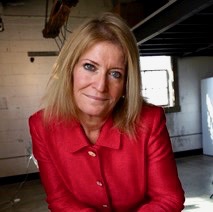By Susan Glickman, Southern Alliance for Clean Energy
Why is the Orlando Utilities Commission (OUC) rushing a vote on its long-term energy road map – the Electric Integrated Resource Plan (EIRP) – at their board meeting Tuesday? There is no reason to fast-track a decision on this plan – especially since the process has been plagued with a lack of transparency.
(You can attend today’s meeting by clicking here: Attend OUC Board Meeting Tuesday 12/8 @2 PM )
David Schlissel of the Institute for Energy Economics and Financial Analysis calls out OUC for the “unjustifiably short period for its customers to review that draft” and the “unwillingness to require its consultant, Siemens PTI, to provide the workpapers and data underlying the analyses in the EIRP.”
Energy decisions have far reaching consequences. At stake is whether OUC taps low-cost resources like energy efficiency and solar, or locks in more fossil fuel generation for the next 20 years. Your wallet and your health are at risk.
We’re pleased OUC is shutting down polluting coal plants. But how we replace this outdated power matters, so it’s concerning to see OUC pushing misleading information about critical components of the plan.

For instance, why is OUC mischaracterizing past comments of my organization to insinuate support for its programs? As the Florida Director of Southern Alliance for Clean Energy (SACE), I must set the record straight. On several occasions, OUC staff has represented – online and in meetings – that SACE supports their energy efficiency programs. We don’
In reality, SACE has raised grave concerns about the development of the EIRP and has demanded that OUC cease using statements or characterizations attributed to SACE that suggest OUC is an energy efficiency leader.
OUC’s statements are disingenuous at best. In fact, OUC’s reported efficiency savings have recently fallen considerably, raising serious questions about the company’s current approach and intentions for the future.
Why is OUC hiding the ball? In the EIRP plan, General Manager & CEO Clint Bullock claims, “A state leader in energy efficiency programs, OUC will meet its strategic commitment to achieve 1% of savings of retail sales in 2020.”
There’s a major discrepancy between this claim and reality. In reality, OUC modeled 0.5% in the EIRP, not 1% as claimed. OUC brags that it will invest $30 million on energy efficiency programs over the next 10 years – but the reality is that’s a massive reduction to about half of current spending levels. That’s bad news since efficiency not only helps lower power bills, it can avoid the need for building costly, polluting fossil fuel generation.
What’s more, OUC spent $200,000 on a study by the National Renewable Energy Lab (NREL) that found big potential for cost-effective rooftop solar, but in the plan they left 80% of that on the table, instead choosing polluting fossil fuel projects.
OUC has floated a scenario that reduces what they pay customers for solar they generate. Why push back on solar at this early stage? Out of 250,000 customers, OUC reported only 2,101 net metered solar systems.
A city-owned utility’s mission is to benefit customers. One has to wonder what’s at work at OUC and what it means to Mayor Buddy Dyer’s commitment to move Orlando to 100% clean energy?
Plus, it’s curious timing to rush this vote between Thanksgiving and Christmas, while we are enduring a pandemic and thousands of OUC customers face disconnections and evictions.
Before OUC commits your money to new gas plants, they should run the numbers on an Optimized Plan B that fairly reflects energy efficiency and customer rooftop solar resource potential. The public deserves to see if OUC’s proposed gas-powered projects can be avoided with more affordable investments in energy efficiency, demand response and distributed generation. After all, customers shouldn’t pay unnecessarily higher bills to meet the city’s clean energy goal.
All of OUC’s plans should be made with the needs of community at the forefront. It is common sense to compare the company’s gas-powered plan against lower-cost, clean energy solutions before decisions are locked in. Delay the vote. Run the numbers.
Susan Glickman is the Florida Director of Southern Alliance for Clean Energy www.cleanenergy.org
“The Invading Sea” is the opinion arm of the Florida Climate Reporting Network, a collaborative of news organizations across the state. It is supported by a grant from the Environmental Defense Fund.



